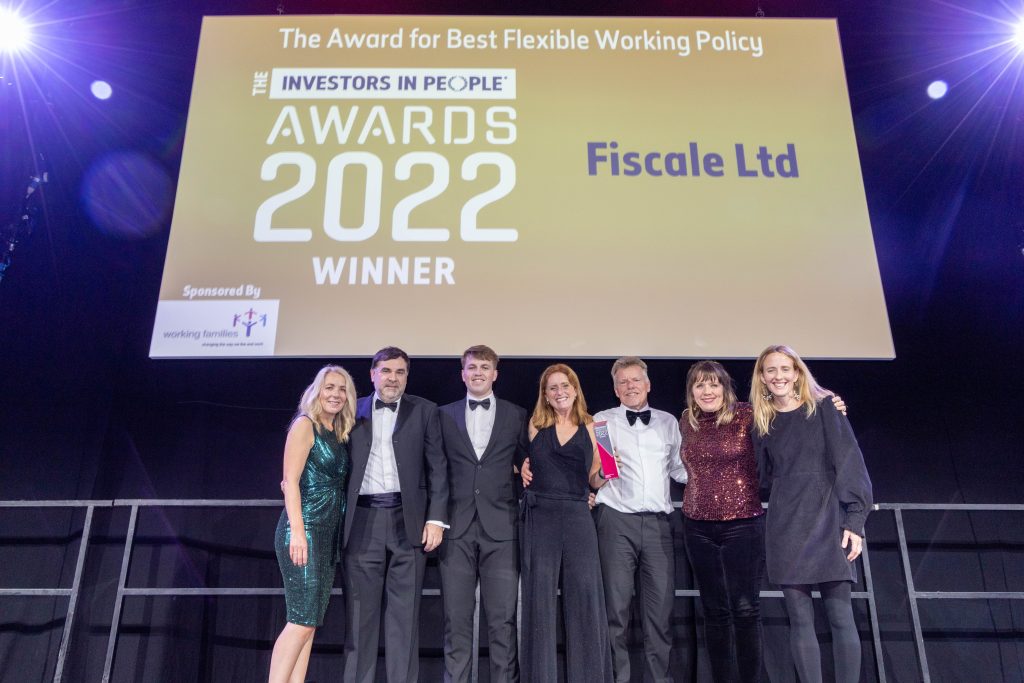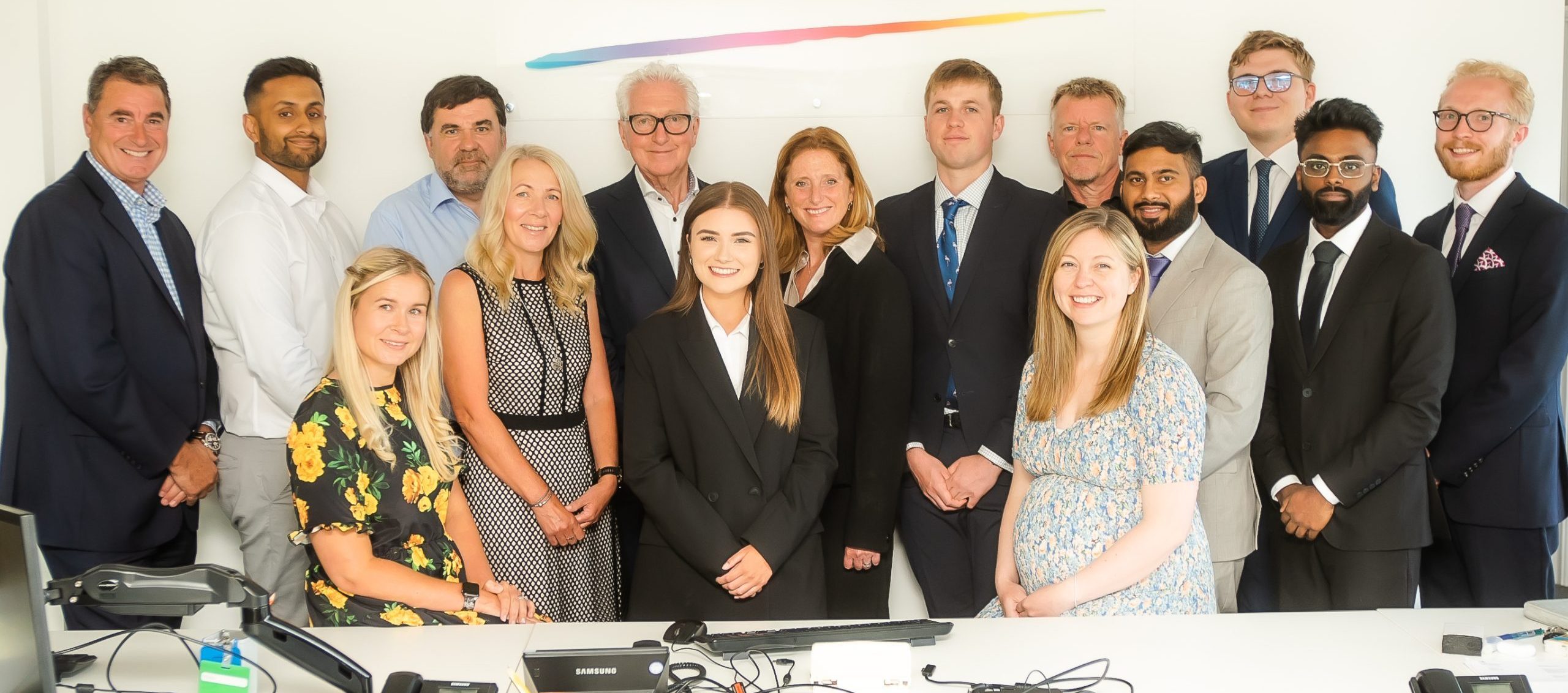
Lucie Mayhew-Smith Fiscale’s HR Director commented ‘We continually look at working practices to improve, asking for employee feedback and ideas from the quarterly Employee Forum and the six-monthly Employee Survey. We strive to lead the way in flexible working practices and believe that our strategy is a USP for Fiscale when it comes to attracting, nurturing, and retaining staff.’
header.header-block{ background-image:linear-gradient(to right, rgba(51,181,214,0.5) 0%,rgba(45,199,116,0.5) 100%); } @media screen and (min-width:415px){ header.header-block{ background-image:linear-gradient(to right, rgba(51,181,214,0.5) 0%,rgba(45,199,116,0.5) 100%); } }We are a diverse bunch, from Baby Boomers, to Millennials and Generation Z. Working Mums and Dads, to part timers, full timers and those who could have retired!
Whilst we are all different, there are some common traits that draw our team together.
[people]
Why not contact us today to discuss your business’ R&D tax relief? It only takes our team around 20 minutes to determine if you are eligible or not.
Although most of the Research and Development (R&D) Tax Credit claims that we submit, sail through and are resolved quickly, HMRC have a duty to ensure that they’re applying a consistent and fair process for all so can open an enquiry into submitted R&D Tax Credit claims.
The very nature of R&D Tax Credit claims means that there will be times when HMRC require a bit more information or further explanations, especially in the first couple of claims.
At Fiscale, each claim that we submit on behalf of our clients is extensively researched and written, to remove any ambiguity. As a result, we’re very fortunate to hold an extremely low enquiry rate. However, they do happen. But what does it mean when they do?
The purpose of these enquiries is:
to ensure that the company is in receipt of the correct amount of relief and that it has paid the correct amount of tax
Unlike general enquiries that HMRC can launch, Research & Development (R&D) Tax Credit enquiries tend to focus on their need for additional information or a better understanding of the R&D being claimed for. This is why every report we file ranges between 25-50 pages in length, as our aim is to make the entire process as transparent, easy and as quick as possible. You can find out more about what qualifies as R&D here.
However, it’s inevitable that some Research and Development Tax Credit claims will require a closer inspection from HMRC. We call this process and “enquiry” or a “compliance check“.
Any letter from HMRC can be intimidating for a company to receive, however, we’re here to help you. Whether you’re an existing client or have submitted your claim yourselves or with help from someone else, we will take the lead and work with you to resolve any enquiries to ensure the best possible outcome for you and your business. We will handle all the correspondence with HMRC and if they need to speak to you, we will be present to guide you.
The first stage is that you will receive a letter to inform you that they have some questions relating to your claim. At this stage any payments will be placed on hold, pending the outcome. Enquiries usually last around four to five months, however, can sometime take a little longer, or they can be resolved much sooner.
Once their questions have been answered, it’s possible for the enquiry to be closed. Under these circumstances, the R&D Tax Credit claim will be processed as usual. However, in some situations they may like to speak with the “competent professional” who was involved in preparing the claim.
The importance of understanding what HMRC are asking and why, cannot be understated. This is our speciality.
Our whole business model revolves around not only having experts who know the R&D Tax Credit system intimately but also have years of experience in dealing with HMRC enquiries.
It’s a simple idea – we hire the best people to ensure the best possible outcome for you. Our team of experts know exactly what to present and how, to ensure the best possible outcome for our clients.
At Fiscale, we do everything that we can to prepare and submit claims that pre-emptively answer all questions and show complete workings for our claim value. This in turn results in less ambiguity when being processed by HMRC.
At Fiscale, we do everything that we can to prepare and submit claims that preemptively answer all questions and show complete workings for your claim value. This in turn results in less ambiguity when being processed by HMRC.
For assistance, please call us
“ A Tribunal has found against HMRC in a groundbreaking decision which could bring an end to years of disagreement over the treatment of SMEs claiming under the Government’s R&D Tax Credit regime”.
Eve Hopley, CTA, Technical Director of Fiscale, a Suffolk-based R&D Tax Credit advisor, was speaking after the publication on 21st October 2024 of the decision in the First-tier Tribunal (Tax Chamber) between its client Collins Construction Ltd and HMRC.
The Tribunal found against HMRC who refused two of the company’s SME R&D Tax Credit claims on the grounds that the R&D was both subsidised and sub-contracted, in contravention of the legislation. Originally, HMRC had also challenged the existence of eligible R&D activity, but this was approved through the normal enquiry process.
Eve Hopley added: “This Tribunal result confirms that HMRC’s interpretation of the legislation was incorrect and we welcome this decision. Like many advisors, Fiscale felt HMRC had altered its interpretation on subsidised and sub-contracted R&D compared to its position in previous years, and this recent approach has subjected SME businesses to lengthy and costly defences. Many gave up because the cost of defending could dwarf the value of the claim to the business. Only the companies with sufficient reserves could afford to take HMRC on. That was unfair.”
Adam Spriggs CTA, technical lead at Fiscale with responsibility for representing this and other contested claims through HMRC enquiries, ADRs and FTTs, said “the recent treatment of SMEs by HMRC has caused enormous stress to our clients and thousands of other SMEs who have had significant Corporation Tax refunds and credits held up or rejected.The clients we have been representing to challenge HMRC’s interpretation, have more than £10 million at stake; the total figure impacted nationally would be huge. Fiscale has worked on achieving this result for over three years, working closely with Edward Hellier, barrister at 11 New Square Chambers.”.
In her decision, Tribunal Judge Sukul supported the outcome of an earlier First-tier Tribunal (Quinn (London) Ltd v HMRC) on the matter of subsidised R&D, that HMRC did not appeal, and further commented on sub-contracted R&D “Objectively assessing the meaning which a reasonable legislature would be seeking to convey in using the words “contracted out” and “contracted out R&D”, we do not consider the broad interpretation suggested by HMRC to be appropriate.”
Collins went to First-tier Tribunal as one of two lead cases who had been refused R&D Tax relief under the SME scheme on both subsidised and sub-contracted grounds. The other case was heard three weeks before Collins and the decision has yet to be released.
John Mayhew, Chair of Fiscale, said “hopefully, this result will re-instate the value of R&D Tax Credits by encouraging and incentivising SMEs to invest in innovation as Parliament originally intended. I urge HMRC to offer redress to potentially thousands of SMEs who since late 2019 have had their R&D claims refused, abandoned on commercial grounds or who have agreed to settle at the lesser benefit through the RDEC process.
header.header-block{ background-image:linear-gradient(to right, rgba(49,33,134,0.5) 0%,rgba(65,87,208,0.5) 50%,rgba(34,152,239,0.5) 100%), url(‘null’); } @media screen and (min-width:415px){ header.header-block{ background-image:linear-gradient(to right, rgba(49,33,134,0.5) 0%,rgba(65,87,208,0.5) 50%,rgba(34,152,239,0.5) 100%), url(‘null’); } }Here are some of our most frequently asked questions, however, if you can think of anything not listed, let us know as we would be happy to answer anything that you can think of.
[faqs terms=”patent-box”]
Why not contact us today to discuss your business’ R&D tax relief? It only takes our team around 20 minutes to determine if you are eligible or not.
